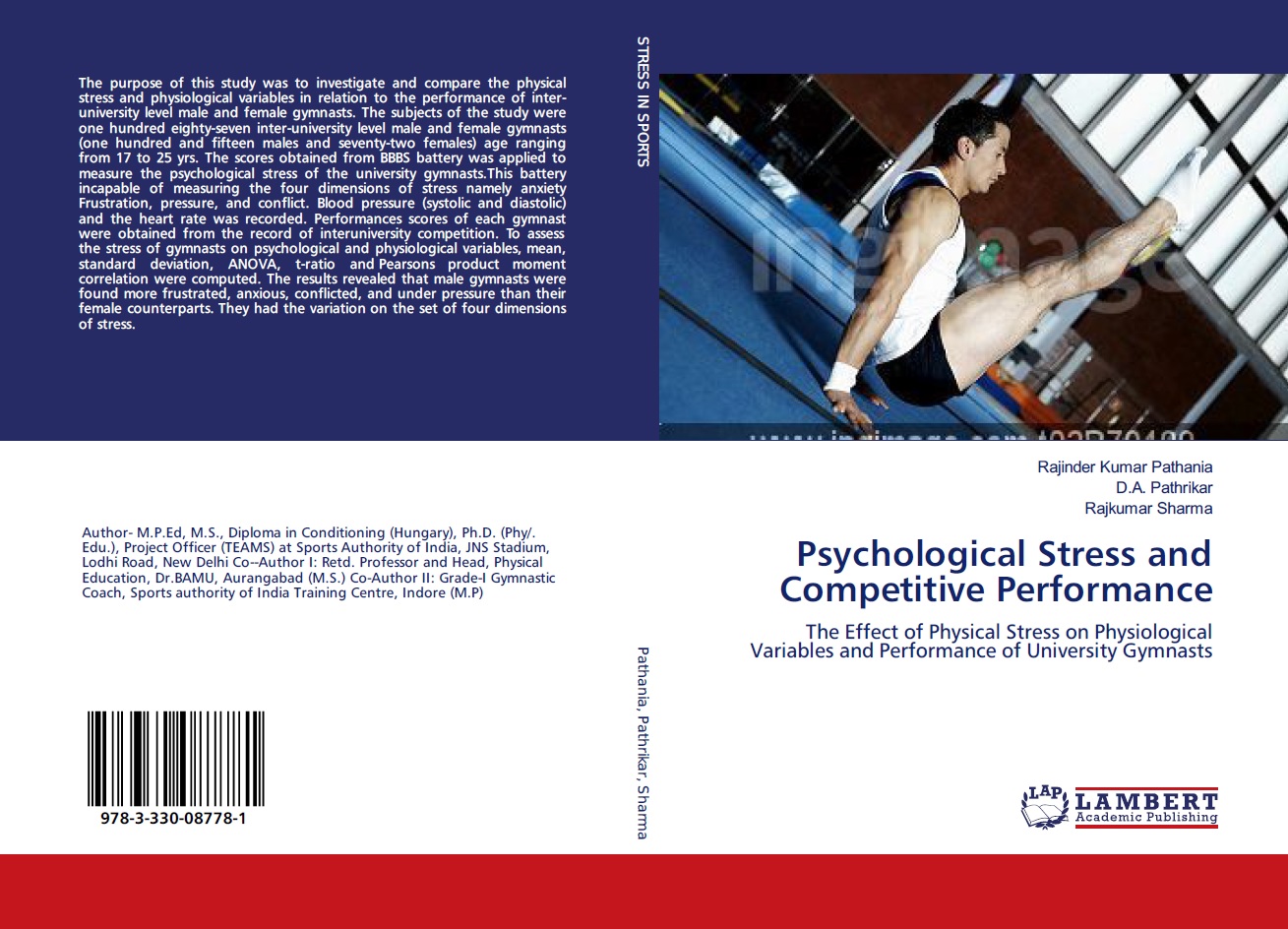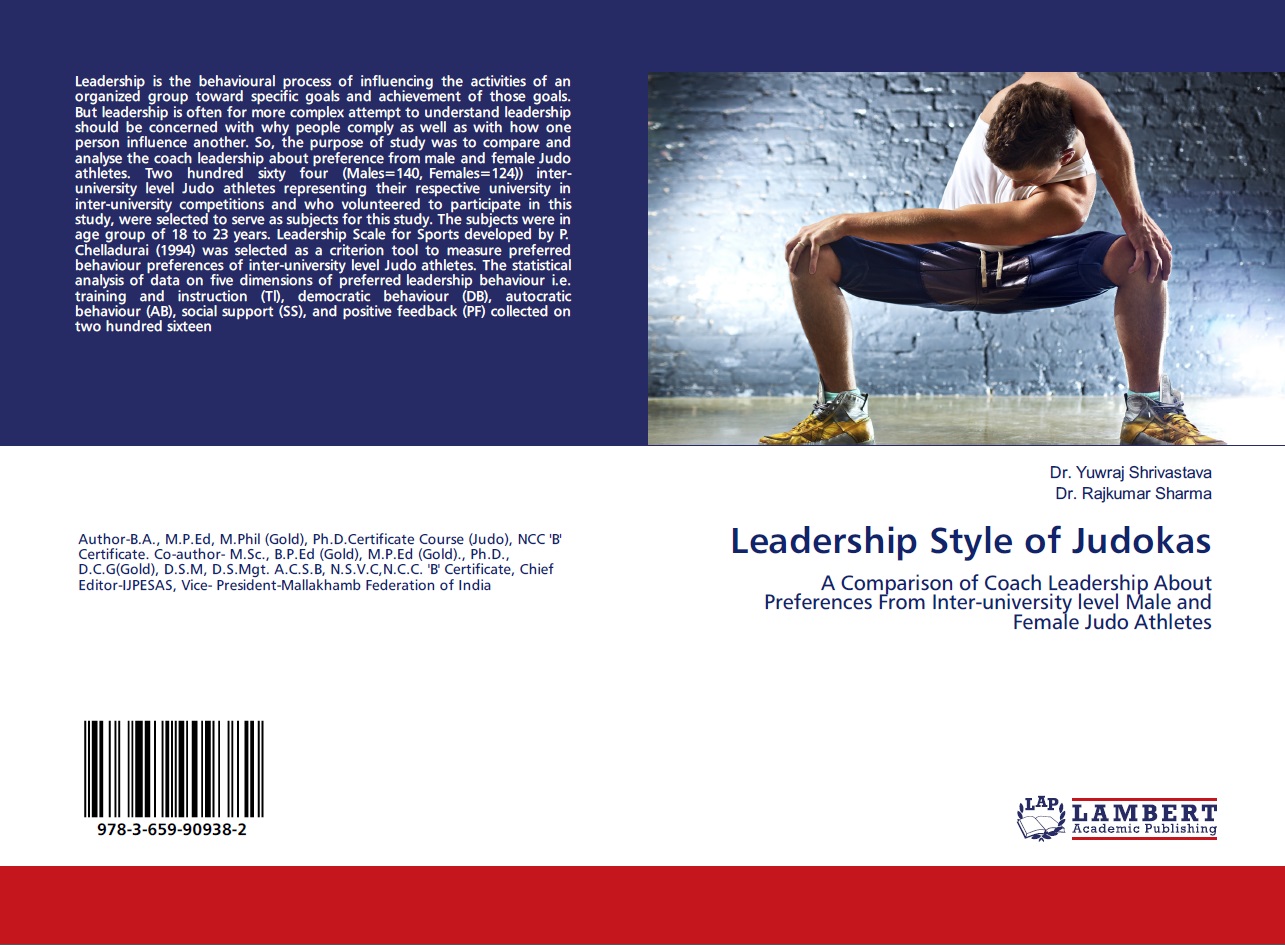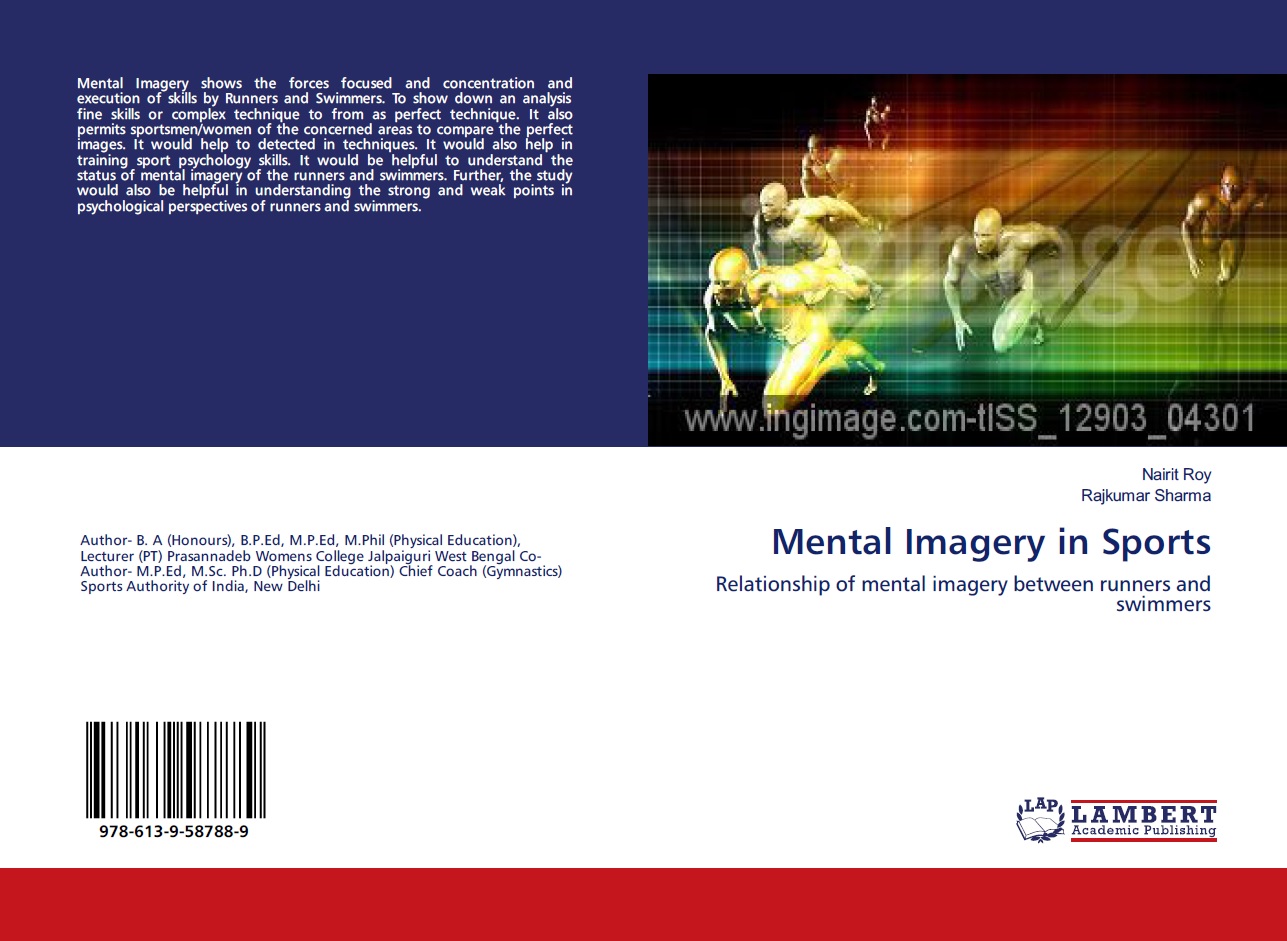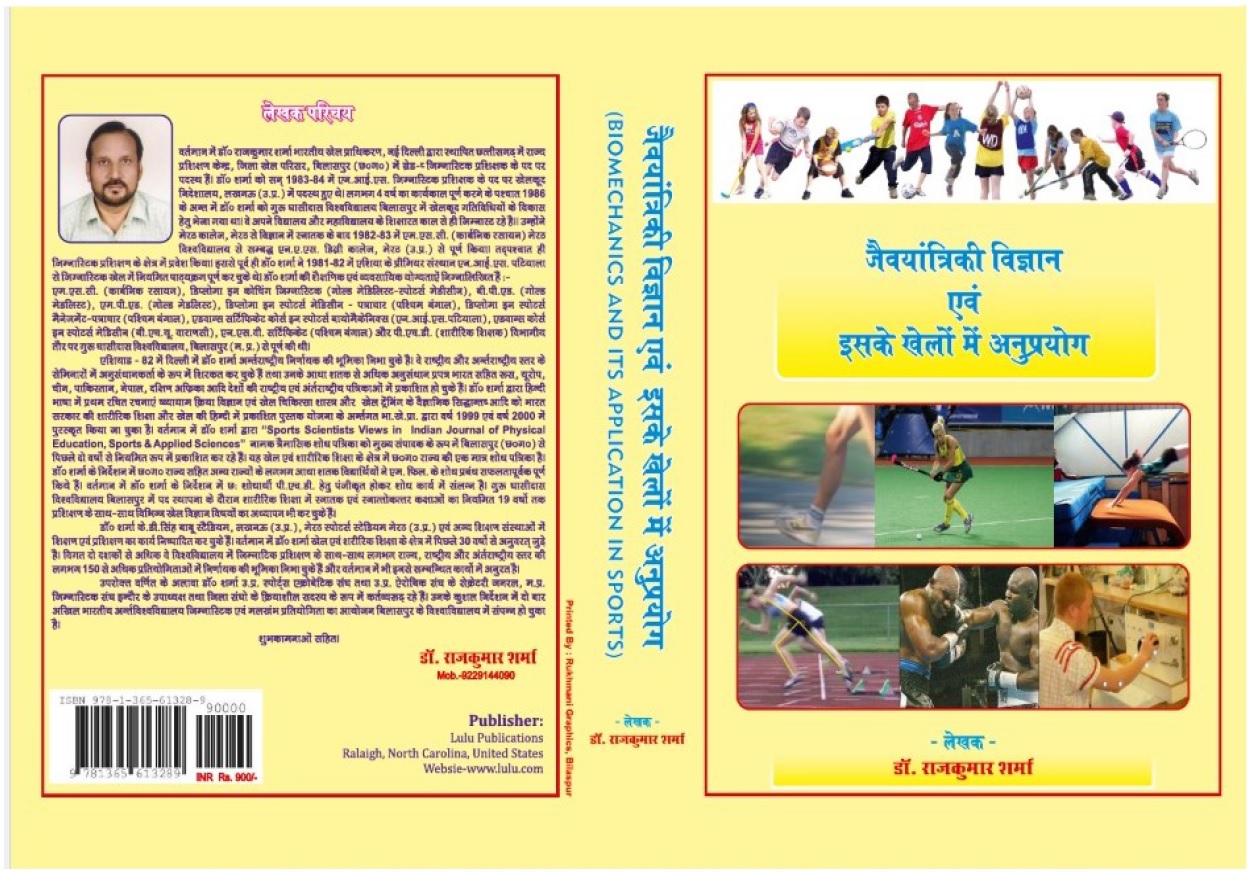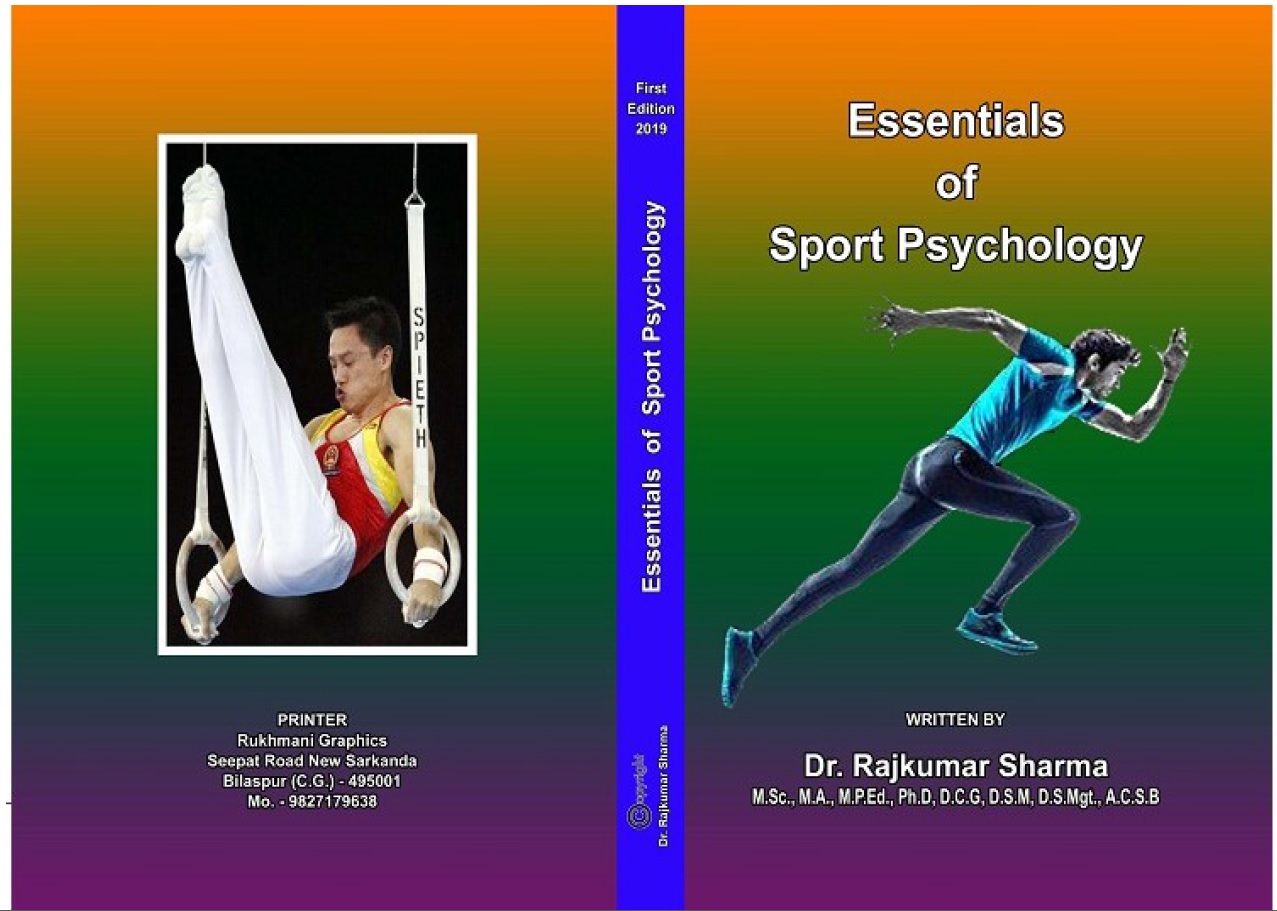| S.No. | Total View Count | Title of Manuscript | Page No | Download/ PDF |
|---|---|---|---|---|
| 1 | EFFECT OF AQUA AEROBIC TRAINING AND YOGIC PRACTICES ON PHYSICAL PHYSIOLOGICAL AND PSYCHOLOGICAL VARIABLES AMONG HOCKEY PLAYERS Author: Dr. Gajendra.K1 | 43-46 |  12 12 |
Article info
doi no.: 05-2016-44975451; DOI Link :: https://doi-ds.org/doilink/09.2023-42785254/IJPESAS/VOL 13/NO. 1/JAN./2023/A7
AFFILIATIONS:
1 Assistant Professor, Department of Physical Education, IISER, Tirupati (Andhra Pradesh) E-mail- hockeygajendra@gmail.com
To achieve the purpose of the study, the investigator randomly selected 90 women hockey players from different colleges in Tirupati Chittoor District. The age of subjects for the study was between 17 to 21 years. The selected subjects were divided into three groups, experimental group I, experimental group II and control group consisting of 30 Hockey players in each group. Experimental group I was assigned as Aqua Aerobics exercises group, Experimental group II was assigned as Yogic Intervention group and control group was not given any special treatment and were under strict supervision of the investigator. Prior to experimental treatment, all the subjects were measured of their Physical Physiological and Psychological components such as Speed, RHR and Sports Achievement Motivation. This formed pre-test scores. After 8 weeks experiments to the experimental groups on respective training, all the three groups were tested on criterion variables selected, which formed post test scores. The difference between pre and post test scores was considered as the effect of varied respective experimental treatments. Analysis of Covariance (ANCOVA) was used to find out the significant differences if any, among the groups for each variable separately. It was concluded that eight weeks of Aqua Aerobic exercises and Yogic Practices weresignificantly improved the Physical Physiological and Psychological variables of women hockey Players compared to control group.
Keywords: Aqua Aerobics, Yogic practices, Speed.
References
- Dr. Jane Katz , Your Water Workou ,broadway book ,2003 United States of America
- Silva Mira and Shyam Mehta , The yoga Iyengar Way , Alfred a kanofInc 1990 London
- B K S Iyengar“Light on Yoga” Harper Collins Publishers India.
- B K Acharya, et. al. (2010), “Effect of Pranayama (voluntary regulated breathing) and Yogasana (yoga postures) on lipid profile in normal healthy junior footballers International Journal of Yoga, 3(2): P 70.
- Clerke Harrison H, David Clerke. Advanced Stastic With Applications to Physical Education, Englewood Cliffs, New Joursey: Prentice Hall. 1972.
- Kamlesh ML. Physical Education; Facts and Foundations. P B Publication (Pvt) Limited, Faridabad, Haryana. 1991.
- Kenneth H. Cooper. The new Aerobics (New York: M Evains and Company). Inc. 1970
- Leonardo AlexandrePeyre-Tartaruga, Marcus PeikriszwiliTartaruga, MarceloCoertjens, Gabriela Lovis Black, AlveroReischak Oliveira, LuizFernandoMartinsKruel, “Physiologic and Kinematical Effects of Water Run Trainingon Running Performance”, International Journal of Aquatic Research andEducation, 3:2, (May 2009), 145 – 150.
- Warner M, Barnes PM, Fingerhut LA: Injury and poisoning episodes and conditions: national health interview and survey 1997. Hyatsville: National Center for Health Statistics, MD, 2000, pp 1–52 [PubMed] [Google Scholar]
- Kannus P: Fall-induced deaths among elderly people. American Public Health Association, 2005, 95: 422–424.
- Roach: High-altitude illness; In: Auerbach PS, ed. Wilderness Medicine. St. Louis: Mosby 2001, pp 32–36.
- Chou LS, Kaufman KR, Walker-Rabatin AE, et al. : Dynamic instability during obstacle crossing following traumatic brain injury. Gait Posture, 2004, 20: 245–254
- Lach HW: Falls in the elderly: reliability of a classification system. J Am GeriatrSoc, 1991, 39: 197–202
- Podsiadlo, D., & Richardson, S. (1991). The timed "Up & Go": A test of basic functional mobility for frail elderly persons. Journal of the American Geriatrics Society, 39, 142-148.
- Tinetti ME, Speechley M, Ginter SF: Risk factors for falling among elderly persons living in the community. N Engl J Med, 1988, 319: 1701–1707
- Woollacott MH, Shumway-Cook A, Narshner LM: Aging and posture control change in sensory organization and muscular coordination. Int J Aging Hum Dev, 1986, 23: 97–114
- Shumway-Cook A, Brauer S, Woollacott M: Predicting the probability for falls in community-dwelling older adults. PhysTher, 1997, 77: 812–819
- Norton, C. O., Hoobler, K., Welding, A. B., & Jensen, G. M. (1997). Effectiveness of aquatic exercise in the treatment of women with osteoarthritis. The Journal of Aquatic Physical Therapy, 5, 8-15.
 admin@sportscientistsviews.com
admin@sportscientistsviews.com

